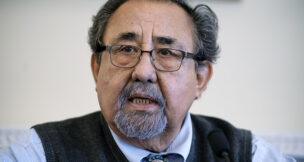Preventing opioid addiction means more access to pain treatment options
Guest Opinion//May 26, 2020//
Preventing opioid addiction means more access to pain treatment options
Guest Opinion//May 26, 2020//

Arizona hospitals and healthcare professionals shifted their focus in recent months to responding to the COVID-19 crisis. But early indications now suggest the pandemic may be helping to fuel our nation’s other public health emergency: opioid abuse.
Local authorities and first responders in many communities report a spike in opioid overdoses. A combination of factors may be contributing to the uptick, with stay-at-home orders closing treatment clinics and forcing counseling and support-group sessions online. Meanwhile, stress and social isolation create a dangerous environment for those suffering from opioid use disorder. As Executive Director Lee Pioske of Crossroads recovery centers wrote recently in the Capitol Times, “recovery is a process that is not undertaken alone.”

I’m worried. An estimated 2 million Americans already suffer from opioid use disorder, and opioid overdoses kill more than 130 Americans each day, on average. Arizona sustained over 1,100 opioid-involved deaths in 2018 alone. Now that Arizona hospitals have commenced elective surgeries for the first time since they were paused by COVID-19, that means new patients who will require post-operative pain treatment – an opioid prescription, in many cases. As a nurse anesthetist who specializes in anesthesiology and non-opioid therapies, I’m well aware that legal opioid prescriptions too often lead patients down a path of years-long addiction.
Fortunately, FDA-approved, non-addictive pain treatments exist – including single-dose injectables that release slowly over the course of up to 90 hours. For many patients, these therapies can take the place of traditional opioids. The problem is antiquated Medicare reimbursement rules, which bundle payments and incentivize health providers to select the cheapest pain treatment (in the short term, at least): opioid pills. It’s antiquated federal regulations like these that have helped create our nation’s over-reliance on opioids.
The federal NOPAIN Act will help change all that by requiring Medicare to cover non-opioid treatment alternatives. The legislation has bipartisan congressional support, and I’m grateful that two members of Arizona’s delegation – U.S. Sen. Kyrsten Sinema and U.S. Rep. Tom O’Halleran – are among its co-sponsors.
National studies suggest a 10% reduction in surgery-related opioid prescribing will result in 300,000 fewer people annually developing an opioid addiction, and keep over 330 million opioid pills out of American households, where they are often stolen or abused. These aren’t just numbers on a page – they speak to lives saved, families preserved and bright futures kept intact. Passing the NOPAIN Act will enable medical facilities to provide Arizona families more opioid-free alternatives and help all of us take a big step forward in the fight against opioid abuse.
Let’s stem the tide of addiction. Pass the NOPAIN Act.
Blaire Zamboni is a Certified Registered Nurse Anesthetist (CRNA) and Secretary of the Arizona Association of Nurse Anesthetists.


















